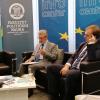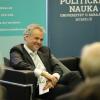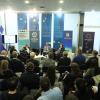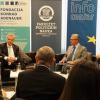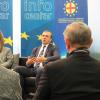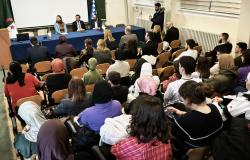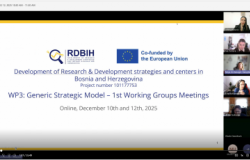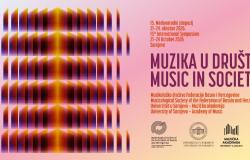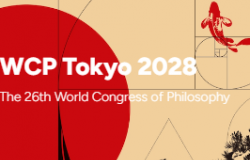Roundtable on "Bosnia and Herzegovina and the European Union: What Now?"
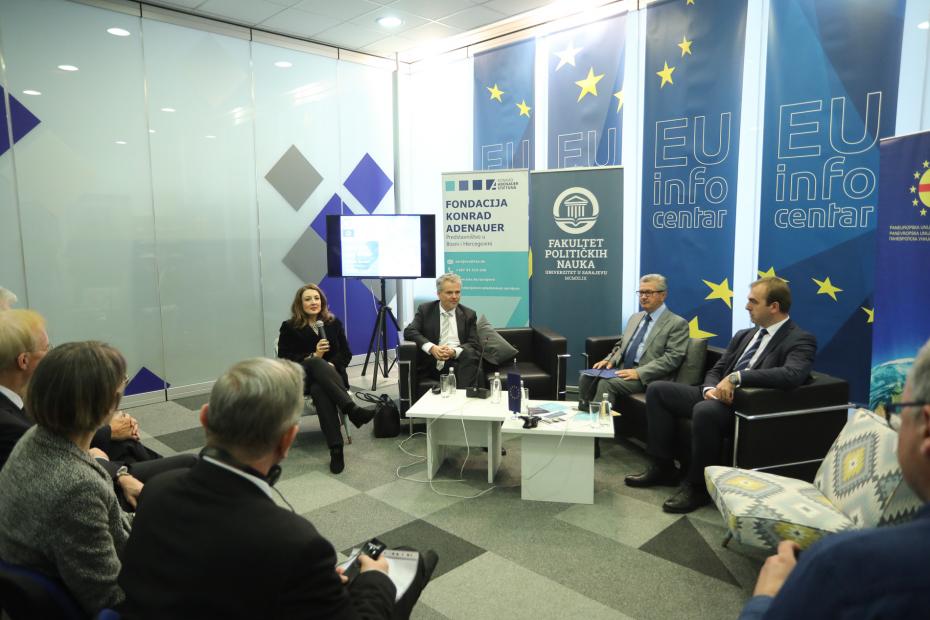
The Faculty of Political Science of the University of Sarajevo and the Pan-European Union of Bosnia and Herzegovina held a roundtable on 7 November 2019: "Bosnia and Herzegovina and the European Union: What Now?". The roundtable was held at the EU Info Center, and the topic was fueled by a decision by the Council of the European Union not to open enlargement talks with Albania and Northern Macedonia, countries that have made reform numbers and compromises, and which has implications for other Western Balkan countries.
The event was opened by the UNSA Faculty of Political Sciences Dean, Prof. Dr. Sead Turčalo, pointing out that the whole region is located on the outskirts of the EU, and when one reads the latest EC Opinion on BiH, then BiH and Kosovo (which do not yet have candidate status) one can say that they are on the periphery of the periphery.
“Even though there is a declarative consensus on the BiH road to BiH, I am convinced that the moment of concrete reforms, there will be a problem of implementation, because one of the key reforms required by the EU is to change the way and the internal decision-making structure in BiH” explained Prof. Turčalo.
The President of the Pan-European Union in BiH and former BiH Ambassador to the EU Osman Topčagić noted that it had happened earlier that the European Commission proposed to open negotiations, in this case for Albania and Northern Macedonia, without the EU Council. But in his view, the difference here is that such a decision applies in some way to other countries whose aspirations are full EU membership. He explained that the story of the EU enlargement process itself is now opening up, i.e. how successful it is and how much the countries involved in the process, despite formal progress, are actually changing internally, how much they adopt European standards and values, and how much they implement the laws they adopt in practice.
In one of his first public appearances since taking office, Ambassador Johann Sattler, the Head of the EU Delegation to BiH, said that the two countries are actually collateral damage to the whole situation, and they are countries that have done a lot in recent years. “Northern Macedonia also deserves more from Albania to open enlargement negotiations, which is why I agree with EU Enlargement Commissioner Johannes Hahn who said that this decision does not serve the EU in honor” Sattler emphasized.
He stressed, however, that the enlargement process was in crisis even before that decision because it did not take place fast enough for aspiring countries, and the EU considered that reforms were not being implemented, so now is the best time to see how this should also be a wake-up call.
Speaking about the situation in BiH, he emphasized that the problem was exacerbated by the fact that no new convocation of the BiH Council of Ministers was formed for more than a year, and at the same time the work of the state parliament was blocked.
The participation of French Ambassador to BiH Guillaume Rousson and Northern Macedonia Ambassador Ekrem Ebibi was particularly interesting.
In addition to the students of the International Relations and Diplomacy Master's Program at FPN/UNSA, the event drew the attention of numerous representatives of the diplomatic corps, the academic community, non-governmental organizations involved in monitoring Euro-integration processes, political analysts, and BH politicians interested in Euro-integration. One common conclusion is that, regardless of the circumstances within the EU, BiH should formally adopt as soon as possible the Action Plan prepared through the Coordination Mechanism in the Directorate for European Integration, and that the attention of all political actors focus on 14 priority areas that the EU Council will to consider when discussing the European Commission's Opinion on BiH's application for EU membership.





